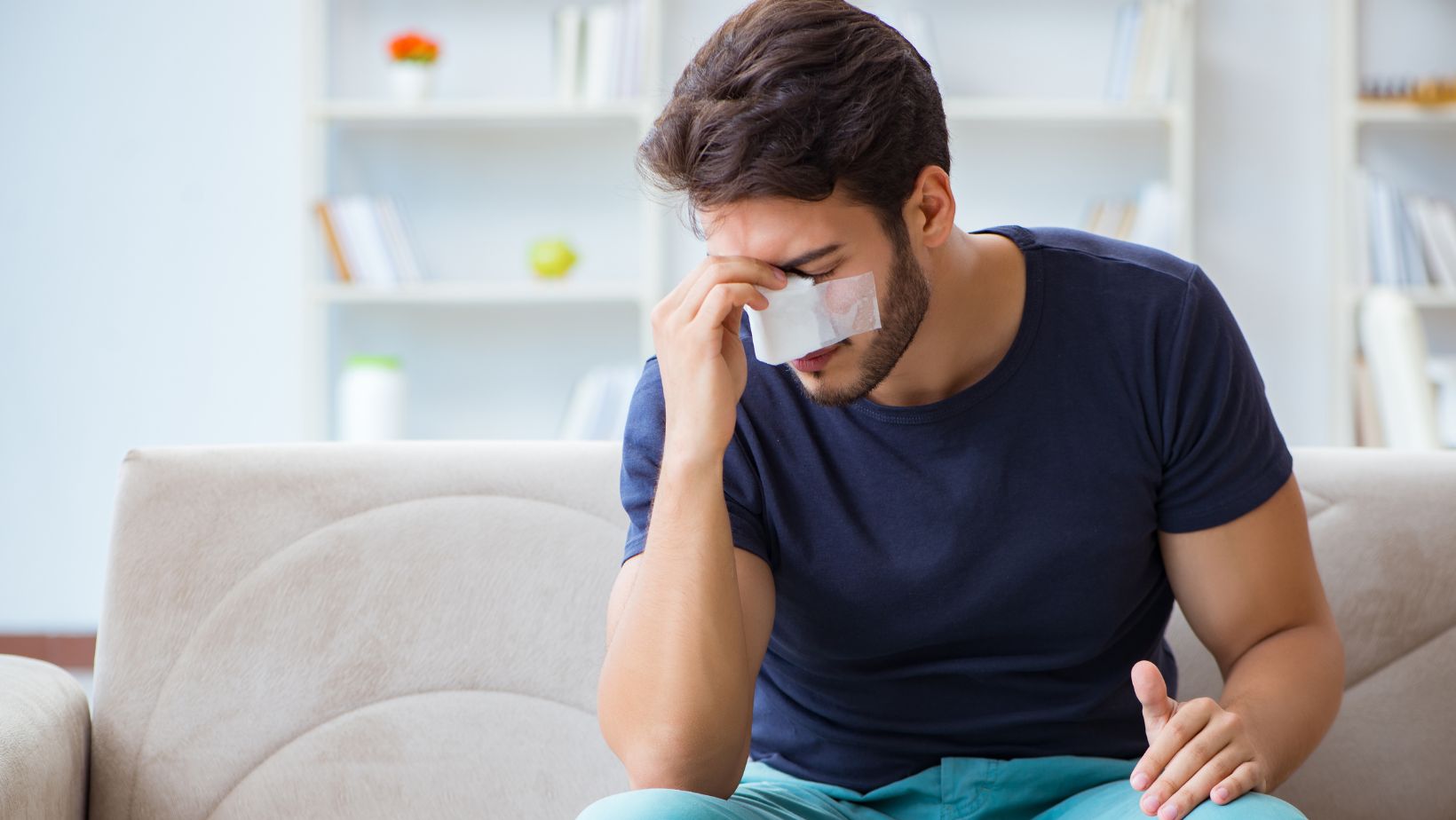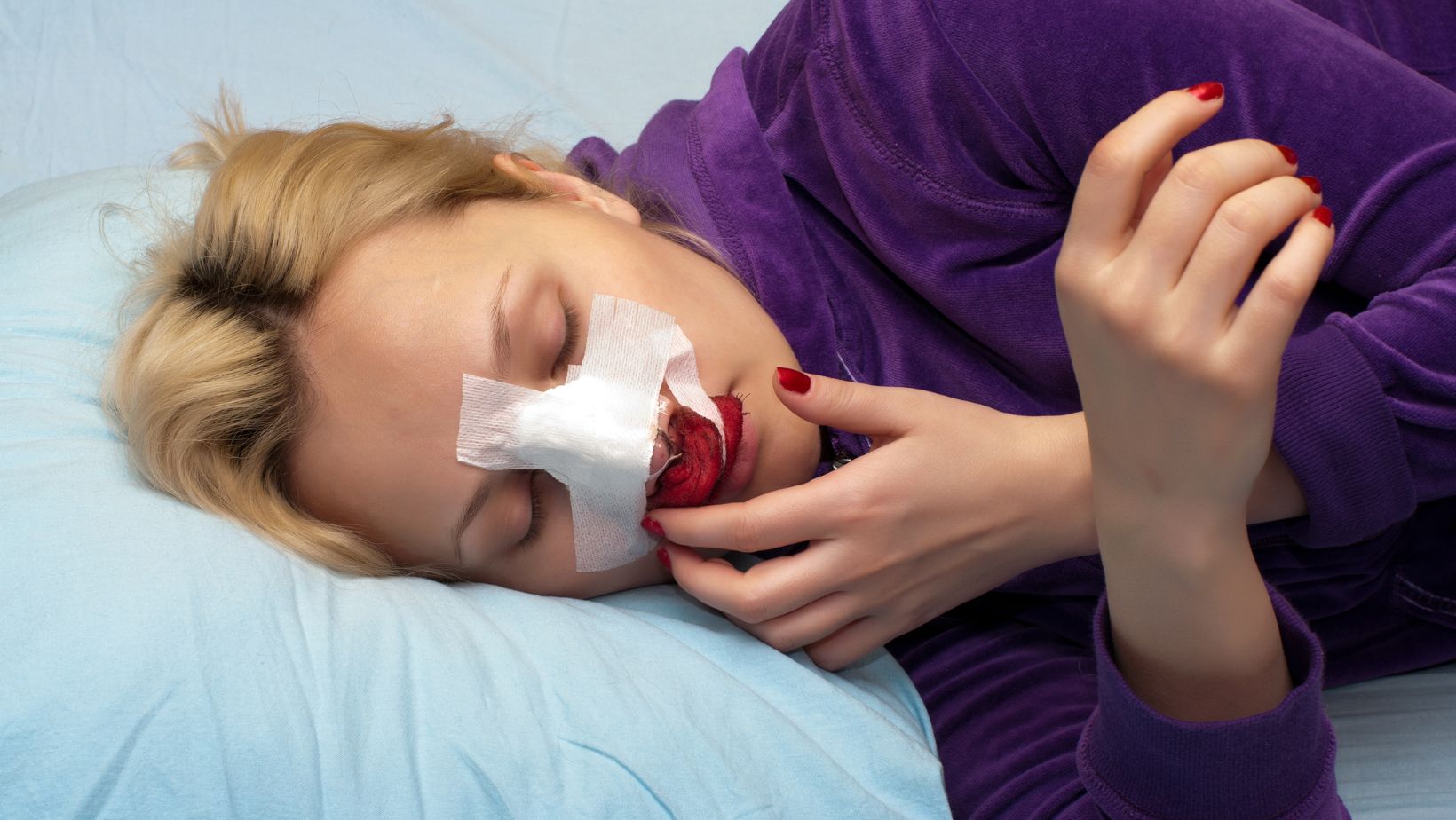Rhinoplasty, commonly known as a nose job, is one of the most sought-after cosmetic surgeries. While many people undergo this procedure to enhance their physical appearance or correct breathing issues, it’s crucial to understand how such a transformative surgery can affect your emotional well-being. Whether you’re considering rhinoplasty for cosmetic or functional reasons, it’s important to be aware of the potential psychological impact, including the possibility of experiencing post-surgical depression.
The Psychological Impact of Cosmetic Surgery
Undergoing any cosmetic surgery, including rhinoplasty, can have a profound effect on your mental state. While some people experience a significant boost in self-esteem, others might struggle with emotions they didn’t anticipate. It’s common to have high expectations before surgery, and sometimes, these expectations don’t align with the reality of the results, leading to emotional distress.
Common Emotions Experienced Post-Surgery
After a nose job Turkey, it’s normal to experience a rollercoaster of emotions. Initially, you might feel a sense of excitement or relief, especially if you’ve been longing for a change in your appearance. However, as the physical recovery progresses, you could also experience emotions like:
- Euphoria and Excitement: Feeling thrilled about the anticipated results.
- Anxiety and Self-Doubt: Worrying about how others will perceive your new look.
- Impatience: The healing process can be slow, and the final results may take time to show, leading to frustration.
These emotions are all part of the post-surgery journey but can sometimes contribute to a deeper emotional downturn.
Can Depression Occur After Rhinoplasty?
Yes, depression can occur after rhinoplasty. Many patients find themselves feeling unexpectedly down or dissatisfied after their surgery. This phenomenon is known as post-surgical or post-operative depression, and mental health professionals recognize it. Various studies suggest that individuals undergoing cosmetic surgery are at an increased risk of depression, especially if they had underlying emotional struggles beforehand.
Factors Contributing to Post-Rhinoplasty Depression
Several factors can trigger post-rhinoplasty depression:

- Unrealistic Expectations: If you expect dramatic, instant changes, you might be disappointed when results take longer.
- Physical Discomfort: Recovery can be physically taxing, with swelling, bruising, and discomfort affecting your mood.
- Social Isolation: Many people choose to stay home during the recovery phase, which can lead to feelings of loneliness.
- Body Dysmorphia: Some patients may struggle with body dysmorphic disorder, where they become overly preoccupied with perceived flaws in their appearance, even after surgery.
Understanding these factors can help you recognize why emotions might take a negative turn post-surgery.
Physical Recovery and Its Emotional Impact
Rhinoplasty recovery isn’t just about physical healing; it’s also an emotional journey. The timeline for recovery can vary, but many patients experience visible swelling and bruising for several weeks. It’s important to note that it can take months for the final results of the surgery to appear, which can be mentally challenging as you adjust to your new look. During this time, insecurity or doubt can creep in, affecting your self-esteem and emotional state.
In today’s society, significant pressure exists to look a certain way. You may feel pressure from family, friends, or social media to achieve a “perfect” result. Comparing your recovery to idealized versions of rhinoplasty, especially those seen in celebrities or influencers, can worsen feelings of inadequacy and contribute to post-surgery depression.
Recognizing the Symptoms of Post-Surgical Depression
It’s essential to distinguish between the normal ups and downs of recovery and signs of clinical depression. Common symptoms of depression after rhinoplasty might include:
- Persistent feelings of sadness or hopelessness
- Lack of interest in activities you previously enjoyed
- Difficulty sleeping or changes in appetite
- Social withdrawal or isolation
- Irritability or frustration
If these symptoms persist beyond the initial recovery phase, it’s vital to consider seeking professional support.
How to Cope with Post-Rhinoplasty Depression
If you find yourself experiencing post-rhinoplasty depression, there are several steps you can take:
- Seek Professional Help: Don’t hesitate to contact a therapist or counselor. They can offer guidance and support.
- Build a Support System: Talk to your friends and family about your feelings. Sometimes, sharing your emotions can be incredibly therapeutic.
- Manage Expectations: Remember that rhinoplasty results take time and that gradual improvements are normal.
Preventing Post-Rhinoplasty Depression
One of the most effective ways to prevent post-surgical depression is to ensure you’re mentally prepared for the emotional journey ahead. Before surgery:

- Mental Health Screening: Consider speaking with a mental health professional to assess your emotional state before surgery.
- Set Realistic Expectations: Have an open conversation with your surgeon about what results you can realistically expect.
- Understand the Emotional Process: Knowing normal ups and downs can help you feel more prepared for the post-surgery recovery.
When to Seek Professional Help
It’s important to recognize when post-surgical emotions go beyond the normal range and become a more serious concern. If you experience prolonged depression or anxiety, it might be time to seek help from a therapist or psychiatrist. Many people benefit from counseling during recovery to help them process their emotions and adjust to their new appearance.
Rhinoplasty can be a life-changing procedure, but it’s important to acknowledge the emotional side of recovery. Depression after rhinoplasty is not uncommon, and being aware of the potential for emotional challenges can help you navigate the process more smoothly.
If you’re considering surgery or already in recovery, remember that seeking support, managing expectations, and understanding your mental health are key to a positive outcome.
Ready to take the next step toward your rhinoplasty journey? Visit Flymedi to review and compare top-rated clinics worldwide. Find the best surgeons, read real patient reviews, and get personalized quotes to help you confidently make an informed decision. Start your search today and move closer to achieving the results you’ve always wanted.























